VAT Registration, Recon & Submissions
Our team can assist you with the full VAT process.
OVERVIEW
Value-Added Tax is commonly known as VAT. VAT is an indirect tax on the consumption of goods and services in the economy.
Revenue is raised for the government by requiring a business, that carries on an enterprise, to register for VAT. In doing so, the business will charge VAT on supplies of goods and services made by it, on the importation of goods and on imported services (subject to certain conditions).
The business will also be entitled to deduct any VAT charged to it, or under limited circumstances from a business that is not registered for VAT, in respect of a supply made to it. The business is required to pay the difference between the VAT charged by it and the VAT charged to it, or claim a VAT refund where the VAT charged to it exceeds the VAT charged by it.



WHAT’S INCLUDED
Get access to great bookkeeping and accounting professionals
backed by best in class cloud accounting tools and technology
What is Value Added Tax?
VAT is one of those indirect taxes that consumers know they pay, but do not think of as paying taxes per se. This is a very effective way for SARS to collect taxes from millions of taxpayers through a much smaller number of VAT vendors.
The VAT rate changed from 14% to 15% on standard rated taxable supplies on 1 April 2018 which caused a lot of bookkeepers, accountants and finance teams of entities many sleepless nights, but we have all adjusted to the higher rate of levying this indirect tax.
It does not mean that the reconciliation is easy or that responding to a VAT auditor’s queries is a walk in the path.


Who needs to register with SARS to be VAT vendors?
- It is mandatory for any business to register for VAT if their total taxable income in any consecutive 12-month period exceeds, or is likely to exceed, R1 million.
- Any business may choose to register voluntarily if the taxable income earned, in the past 12-month period, exceeded R50 000.
- Any business may also choose to register voluntarily if they can prove that they will make taxable supplies exceeding R50 000 in the 12 months following the date of registration.
VAT Submission Dates
Category A: Every 2 calendar months. Under this category, a vendor is required to submit one return for every two calendar months, ending on the last day of January, March, May, July, September and November. Paying VAT every two calendar months is also known as paying VAT “bi-monthly.”
Category B: Every 2 calendar months. Under this category, a vendor is required to submit one return for every two calendar months, ending on the last day of February, April, June, August, October and December.
Category C: Every calendar month. Under this category, a vendor is required to submit one return for each calendar month. A vendor will fall within this category if:
- The total value of taxable supplies made by the vendor has exceeded, or is likely to exceed, R30 million in any consecutive 12-month period.
- The vendor has applied in writing to be placed in this category, or
- The Commissioner has determined that the vendor falls within this category due to the vendor repeatedly failing to perform any obligations as required by the VAT act.
Category D: Every 6 calendar months. Under this category, a vendor submits one return for every 6 calendar months, ending on the last day of February and August (or any other month where a written application is made to the Commissioner and approved). This category applies mainly to a vendor who:
- Carries on farming activities where the total value of taxable supplies is less than R1.5 million for a period of 12 months.
- Is a micro business.
Category E: Every 12 calendar months. Under this category, a vendor is required to submit one return every 12 months, ending on the last day of the vendor’s year of assessment (or any other month where a written application is made to the Commissioner and approved). This category applies to a vendor:
- That is a company or a trust fund
- That carries on activities of letting fixed property or renting of movable goods or the administration or management of companies which are connected persons to the vendor

The process for business VAT submissions
The full VAT process that we can assist you with entails the following:
- Online VAT registrations and assistance with the set up of the correct invoicing and VAT coding.
- Bookkeeping and accounting to ensure that all income and expenditure are treated correctly in terms of the VAT act.
- Completion and submission of VAT201 returns.
- Handling VAT verification/audit requests from SARS on your behalf.
- Performing VAT reconciliations between what has been submitted to SARS and what is reflected in your accounting records
TESTIMONIALS
What Our Clients Say.
Entrepreneurs change the world. They create growth, job opportunities and social impact. We serve entrepreneurs! Hundreds of founders and management teams tap into the expertise of their trusted finance and accounting partner to help scale their companies.
Business is about people. When you partner with Outsourced CFO, a finance professional or team with the right mix of knowledge, skills and experience is personally matched with your company – working with you to create a world class finance function for your growing company. Your success story is our success story.








PARTNERS
Our Clients.
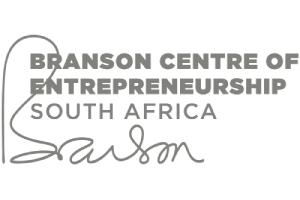
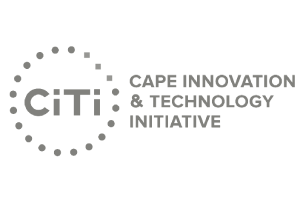
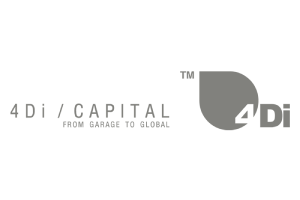
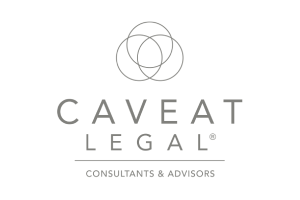
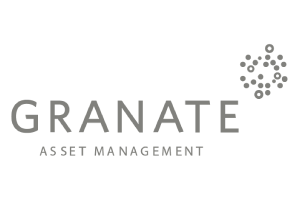
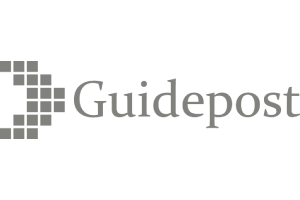
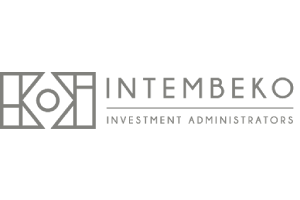
RESOURCES
Read Our Latest Insights.

Why making use of the Cloud will make remote working count
Why making use of the Cloud will make remote working count Leverage the cloud to make remote working work for you! Cloud access to financial

4 ways to automate a business using Cloud Accounting
Four ways to automate a business using Cloud Accounting and avoid the frustration of remote working. Every business owner is looking for ways to be

10 Steps to Engineering Financial Success in Business
10 Steps to Engineering Financial Success in Business. From working with many companies across sectors, some that are very successful and others that are still a
FAQ
Frequently Asked Questions
Do you pay VAT on Services?
In South Africa, Value Added Tax (VAT) is applicable to services. VAT is a consumption tax imposed on the value added to both goods and services at each stage of production or distribution. While most services are subject to standard VAT rates, certain exemptions and zero-rated categories exist. Exempt services do not attract VAT, and businesses cannot claim input VAT credits on related expenses. Zero-rated services are subject to a 0% VAT rate, allowing businesses to claim input VAT credits. It’s advised to refer to the latest guidelines from the South African Revenue Service (SARS) or consult a tax professional for accurate information on VAT obligations for services.
Is there VAT on consultancy services?
Yes, consultancy services in South Africa are generally subject to Value Added Tax (VAT). Consultancy services fall under the category of services that are typically subject to the standard VAT rate, unless they qualify for an exemption or fall under a zero-rated category. It is important to consult the latest guidelines from the South African Revenue Service (SARS) or seek advice from a qualified tax professional for the most up-to-date and accurate information regarding VAT on consultancy services.
How to calculate VAT?
Determine the VAT Rate: Identify the applicable VAT rate for the specific goods or services. The standard VAT rate in South Africa was 15%. However, VAT rates can change, so ensure you use the correct rate.
Calculate the VAT Amount: The formula to calculate the VAT amount is:
VAT Amount = (VAT Rate / 100) * Total Invoice Amount
For example, if the total invoice amount is R1,000 and the VAT rate is 15%:
VAT Amount = (15 / 100) * 1000 = R150
Total Invoice Amount with VAT: To determine the total amount including VAT, simply add the VAT amount to the original invoice amount:
Total Invoice Amount with VAT = Total Invoice Amount + VAT Amount
Using the previous example:
Total Invoice Amount with VAT = 1000 + 150 = R1150
What are the VAT registration requirements?
Here are the general Value Added Tax (VAT) registration requirements for businesses in South Africa:
Mandatory Registration Threshold: A business is required to register for VAT if its total taxable supplies (sales) in a consecutive 12-month period exceed the mandatory registration threshold. This threshold is subject to change and should be confirmed with SARS. Businesses that expect their turnover to exceed this threshold within the next 12 months must also register.
Voluntary Registration: Even if your turnover doesn’t exceed the mandatory threshold, you can choose to register for VAT voluntarily. This might be beneficial if you want to claim input VAT credits on your business expenses.
Resident and Non-Resident Entities: Both resident and non-resident entities conducting business in South Africa may be required to register for VAT, depending on their sales and the nature of their transactions.
Application Process: To register for VAT, you typically need to complete and submit the VAT 101 form to SARS. The form can be submitted electronically via eFiling or in person at a SARS branch.
Documentation: Supporting documentation, such as financial statements, proof of business activities, and identification of key individuals, may be required during the registration process.
Tax Clearance: SARS may require that the business is tax compliant and has a valid tax clearance certificate before approving the VAT registration.
Accounting Records: Registered businesses must maintain accurate and complete accounting records, including invoices, receipts, and other relevant documentation.
Filing and Payments: Registered businesses must submit regular VAT returns to SARS, reporting their sales and purchases and calculating the VAT liability. Payment of the VAT liability is also required by the specific due dates.
Where do I submit my VAT returns?
What are the three types of VAT?
There are three different types of supplies that a VAT vendor can make
- Standard rated supplies at 15%. This is normal VAT on goods and services
- Zero rate supplies. Vat is levied on some supplies at 0% VAT
- Exempt / non-supplies. Exempt or non-supplies are supplies that are not subject to VAT
Are there items that are not subject to VAT?
Exempt/non-supplies are supplies that are not subject to VAT. These supplies include, but are not limited to, the following:
- Sport and physical education clubs or activities
- Training and education
- Personal insurance, financial services, investments
What fines and penalties are levied for missed VAT returns or late VAT payments?
- There is a 10% penalty on returns that are filed late to SARS
- There is a 10% penalty for late payment of VAT amounts on returns filed.
- All penalties are also subject to interest from the date that payment should have been made, to the date the payment was made.
GET IN TOUCH
Cloud Accounting
Please fill in your details below and one of our consultants will be in touch within the next 24 hours.
Services Lead Enquiry Form
"*" indicates required fields